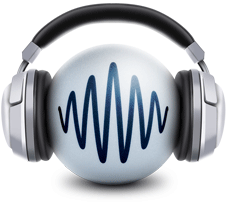 |
| "I Giovani e la Musica" by SuperUbO under CC BY 2.0 |
I've wanted to make an audiobook for close to a year. I think it would be a great way to introduce my work to a new audience (I heard that only 95% of books are made into audiobooks) and some folks like it when authors read their own work.
I think I need to just jump in and DO IT. Go through the short stories I've written and record one. If it turns out ghastly I don't have to inflict it on the world, but if it's half decent it might make a good blog post or podcast. :)
I think I need to just jump in and DO IT. Go through the short stories I've written and record one. If it turns out ghastly I don't have to inflict it on the world, but if it's half decent it might make a good blog post or podcast. :)
Anyway, what has gotten me thinking about recording an audiobook again is a recent blog post by the singular Elizabeth Spann Craig, Getting the Hang of the Business End of Things in which she shares a link to Jeff Bennington's post, Creating Audio Books is Easy Peasy Lemon Squeezy. (What a great blog title!)
Audio Creation Exchange (ACX)
Jeff talks about ACX.com. (If you know what ACX is, or you don't care, skip to "Making An Audiobook," below.) ACX stands for Audio Creation Exchange and was launched by Amazon-owned Audible in May of last year.
What is ACX.com and what can it do for you? This is from their website:
ACX is a marketplace where professional authors, agents, publishers and any other Rights Holders can post audiobook rights to both new frontlist titles and to backlist titles that were never published as audiobooks. At ACX, those rights get matched with Producers, which include audiobook publishers, narrators, engineers, and recording studios. The result: More audiobooks will be made. (The Basics, ACX.com)I first became aware of ACX because Neil Gaiman has his own line of books over at Audible: Neil Gaiman Presents. His audiobooks are sold through Audible and produced through ACX. Neil Gaiman has written a number of articles about his experience:
Neil Gaiman's audiobook record label (An interview with Neil Gaiman)
ACX - if you’re a writer, an actor, a producer (A Tumblr article by Neil Gaiman)
Making An Audiobook At Home
Before a writer can take advantage of ACX, or any other technology designed to help us sell audiobooks, we have to produce the darn things! And ACX will help with this, by either matching you with professionals (you either pay them outright or share royalties) or through umpteen tutorials on how to do the work yourself.
Since I'm a do-it-yourself kind of gal I'm going to try doing the recording myself. But it's nice to know that, if I fail miserably, I can turn to the talented folks at ACX.
Now onto the good stuff: How to record an audiobook yourself in a studio you cobble together.
What you need to make an audiobook at home
The number one thing you want to do is cut down on noise. Here are some tips on how to do that from the professionals over at ACX:Reduce noise
- NO fridge nearby.
- NO heading system nearby.
- Hang blankets over the walls and put a rug on the floor to minimize sound reflection.
Office Equipment
- Desk for your computer.
- Stand for the script.
- Something--for instance, a blanket--to absorb the sound on surfaces.
- A chair that's comfortable and won't creak.
Recording Equipment
- Laptops get noisy when they heat up. Whemn this happens shut the computer off, take a coffee break, and let it cool down.
- Don't record directly to your computer's hard disk. Use a fast peripheral drive with lots of capacity.
- Become obsessive about backing up your work.
- Use a pop filter or shield. This deflects and minimizes sounds that can distort the recording. Sounds such as t's, f's, th's and w's. It will run you about $40 but you can also make your own.
Microphone
You have a choice here, high tech or low tech.
- high tech: A large diaphram condesor mic is the standard for the industry and costs between $400 and $600.
- Low tech: A USB powered snowball mic will do the job if you want a lower cost solution.
The bottom line:
Research it and find out what is available in your area. Go to audio stores, try out their microphones, ask questions, and find a balance of price and performance that suits you.
These tips have been taken from: ACX: Setting up a Home Studio and Want To Narrate Your Own Book?
I've concentrated on setting up a home studio cheaply so I didn't mention some higher priced options a home narrator may want to consider. I highly recommend ACX's series of YouTube videos on how to record your own audiobook.
Here are the first two videos in the series:
This series continues on YouTube here: AudibleACX.
I hope you've been inspired to do an audio recording of your work! Or, if you have done an audio recording, I'd love to hear about your experience. Did you set up a make-shift studio at home, and, if so, perhaps you have some tips you'd like to share. :-)
Links to articles on recording an audiobook:
- Podcasting on the iPad
- How to record an audiobook at home
- Joanna Pen: How to Podcast (I love Joanna's advice: Just start!)
Other articles you might like:
- Making A Scene: Using Conflicts And Setbacks To Create Narrative Drive
- Building A Writer's Platform
- SEO Tips & Tricks: How To Make Google Love Your Blog



